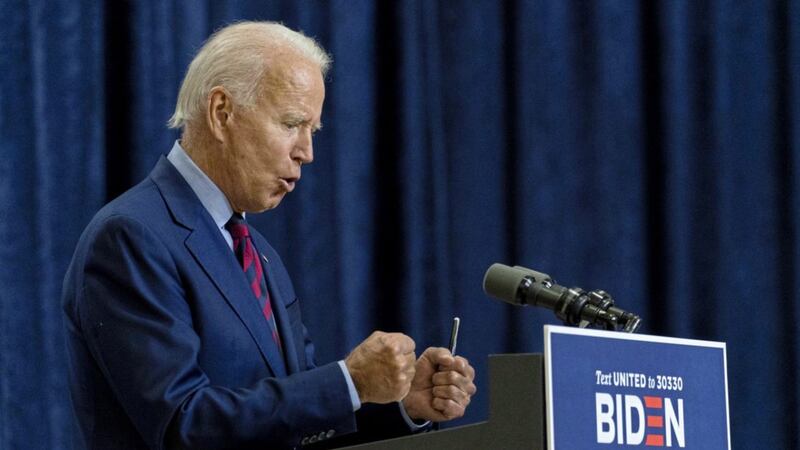The government’s bizarre plan to legislate against the Withdrawal Agreement is unravelling as the damage to the UK’s international reputation sinks in.
Irish-America has played a significant role by vowing to block a US-UK trade deal, which is of huge totemic significance to Brexiteers - including certain DUP representatives - but makes surprisingly little difference to actual trade. The US and UK are already among each other’s largest trading partners without a deal, which in any case is years away.
The real change in the ‘special relationship’ is that Brexit is perceived on the other side of the Atlantic as British Trumpism, slotting the whole issue neatly into the bitter US political divide.
Having that framed in terms of its impact on Northern Ireland (few Americans care about a trade deal) will bring Irish-America firmly back into our politics, in a more partisan fashion than we have been used to for decades.
This is unlikely to stop at blocking a far-off deal. It could mean political threats to existing trade, for example. Once outside the EU’s protection, there is little the UK could do about it.
**
The coronavirus restrictions announced by the executive last week are hardly confusing enough to warrant the subsequent complaints. Fatigue with lockdown in general is a likelier explanation.
However, there has been genuine confusion over whether localised measures apply to Dundonald. The east Belfast suburb was not included in the executive announcement but did appear this week on the official map. First suspicions were that this was a mistake, as the area falls improbably under Lisburn Town Council.
It then emerged the change was deliberate, due to further discussion among ministers, but with no notice given to the public.
This coyness is extraordinary considering Dundonald contains the Ulster Hospital, to which important restrictions on visitors now apply. In a final absurdity, the hospital is 1,200 yards from the executive’s office in Stormont Castle. Did ministers suddenly remember it when they saw it out of the window?
**
Undergraduates have returned, bringing with them the anti-social behaviour problem in Belfast’s Holyland district. This year has a covid twist as young people ignore social distancing restrictions. Without excusing that, or other lawlessness and disorder, it is remarkable it has taken five months to witness such scenes anywhere.
The behavioural scientists who advised governments around the world were consistent in their predictions that people would tolerate two to three weeks of lockdown before mass disobedience, rioting and looting. This could hardly have been more wrong. Perhaps our revenge on the Holyland’s children should be laughing at their social science degrees.
**
There is mixed news for all those who tastelessly attempted to make coronavirus a constitutional issue. A statistical analysis by Queen’s University Belfast and University College Cork has established the epidemic has been similar enough on both sides of the border for the island of Ireland to count as one epidemiological unit, yet also different enough for the north to have fared marginally better than the south - claims to the contrary failed to adjust for Northern Ireland’s older population.
The study did not attempt to explain why.
**
In a textbook illustration of how five-party coalition works, the DUP and Sinn Féin have ganged up on the SDLP over emergency financial support for the taxi, coach and haulage industries.
Transport regulation falls under SDLP infrastructure minister Nichola Mallon but financial support powers reside with DUP economy minister Diane Dodds, the money resides with Sinn Féin finance minister Conor Murphy and only the Sinn Féin and DUP-controlled executive office can move the powers and money around.
After two months of stalling while blaming Mallon for doing nothing, the big two parties finally empowered and funded her to act, then fired off a salvo of statements and assembly questions criticising her for taking so long.
People in the affected industries have been following this closely. Sinn Féin and the DUP must have a low opinion of them to think they will fall for such obvious nonsense.
**
When MLAs awarded themselves a 43 per cent expenses hike last month, they did so by bypassing the independent panel they set up after a previous expenses scandal, seizing its expenses powers and also giving their staff - many of whom are their relatives - pay rises of up to 46 per cent.
So it was hard to see how they could make it look any worse, yet somehow they have managed it. The executive conducts so-called ‘monitoring rounds’ two or three times a year to reallocate unspent funds between departments, with the next one due in October. This is vital to plug gaps in the budget, with emergency pressures in healthcare usually the top priority. But in this year’s remaining rounds, the £4.2 million cost of the expenses increase will have the first call.
The Assembly Commission, which represents MLAs, has pointed out this is the standard way expenses rises are initially funded, under a special arrangement with the Department of Finance.
It forgets this is not a standard year.









